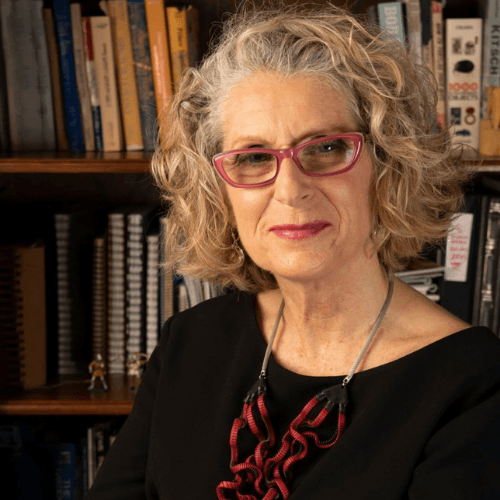Creating extraordinary experiences for donors
- Written by
- Simone Joyaux
- Added
- January 05, 2016
Does your organisation do this? Do you, the fund development leader, make sure extraordinary experiences happen for your donors?
As a donor yourself, do you enjoy extraordinary experiences offered by the charities you give to? Ask yourself: when was the last time you, the donor, were ‘wowed’ by a charity you invest in?
Now ask yourself: When was the last time your organisation ‘wowed’ its donors? Don’t know? Just ask them!

Explore your organisation's ‘wow’ factor for your donors. The thing that describes the extraordinary experiences you offer your donors. But keep in mind that it isn't about glitz or superficiality.
Some of my students at Saint Mary's University of Minnesota proposed the ‘wow’ question. The greatest conversations result from this Master of Arts Program in Philanthropy and Development. The best strategic questions emerge from our conversations.
And I know that these students take the questions and conversations back to their organisations. These professionals work hard to ensure that they focus on the right stuff.

That's the job of the development professional. That's what leaders do. And that's your responsibility, too.
Think about this statement from British architect Sir Denys Lasdun (1914- 2001), ‘Our job is to give the client not what he wants but what he never dreamed that he wanted; and when he gets it, he recognises it as something he wanted all the time.’
Does your organisation do that?
Research shows that customers expect experiences these days. The same holds true for donors. Just the same old same old doesn't work so well anymore – whether you're going to the movies or giving a gift. Remember the days of popcorn at movie theatres? Now you can get Ben and Jerry's ice cream. You can eat hotdogs and pizza before the film.
And how about giving gifts?
Sure, the thank-you letter, but it better be more than a general statement that goes to everyone. Sure, public recognition in the annual report is good. But is there a different way of doing this or adding value to it? For example, how do you recognise loyalty?
How about those cultivation tactics: dinner with the president/CEO, or a special party, the ‘roast someone famous’ fundraising event, or the black-tie gala?
Do these seem somewhat ho-hum? Maybe yes, maybe no. Ask your donors.
For sure, you could make these events more interesting and more engaging. I'll bet you could transform these activities into experiences.

Imagine this: at its annual autumn celebration in 2008 the Women's Fund of Rhode Island had a mock election. Using a laptop computer, guests voted on issues and candidates. Election results were reported at the end of the evening.
A good newsletter is an important cultivation tactic. But is reading your newsletter an extraordinary experience? Sadly, I doubt it. A ‘kick-ass’ newsletter would be much better. Don’t be conservative. Don't be safe. Instead, wow them. Read Tom Ahern'’ books and free e-news so that you can do this well.
Extraordinary experiences do not cost more money…
Extraordinary experiences do not require more time. But they do require innovative thinking. They demand that you talk with your donors and understand why these good people give, how they feel and which emotions trigger their action.
The process of doing this – creating the experiences – is an experience itself. Host focus groups with donors to explore all this. Donors say that a good focus group is an extraordinary experience for them. And they also say that personal interviews are an wonderful for them too.
Here are some more extraordinary experiences for donors:
- Telling your donors stories in your annual report and on your website.
- Inviting a donor to join you at the airport to welcome a new refugee family to this country. (Thanks to Rhode Island's International Institute for this idea.)
- Inviting donors to help the zookeeper feed the animals. (Yes, zoos are now doing this. Wow!)
- Inviting your donors to watch surgery. (Of course, the patient must give permission. But I believe hospitals do this.)
Could you invite me to read stories to children? Could I present a topic in a classroom? Could I watch scientists doing lab experiments for a life-saving drug?
Don't just say ‘no’. Don't let your programme staff refuse. Instead, explore ideas together.
What a great brainstorming session this would be with your board and your fund development committee. How much fun your staff in every department could have exploring ideas.

Now is the time to create extraordinary experiences for your donors.
Please comment on this article by sharing extraordinary donor experiences.... What you've experienced as a donor yourself. What your organisation offers its donors. Tell us all now.
Are you soliciting gifts personally, face-to-face? (Face-to-face in North America is major gift solicitation, not street fundraising.)
Face-to-face solicitation is the cheapest and most effective way to raise money. Face-to-face solicitation is also a marvelous cultivation strategy.
When I was a chief development officer, the theatre company conducted 500 face-to-face solicitations every year to support its annual operations. About seventy-five volunteers took prospects. Maybe 10 of these solicitors were board members. The rest were theatre goers.
So what are you doing?
Start small: for example, recruit two solicitors and personally approach 5 - 10 prospects total. But do make sure that at least one of those two solicitors is a volunteer.
You, of course, can be the other solicitor. And, of course, your executive director should be one solicitor. So you could actually start with three solicitors and 7 - 15 prospects. The solicitors are you, your executive director and one volunteer. And you each take 3 - 5 prospects.
Make sure this first personal face-to-face solicitation "campaign" is successful. Ask current donors only. Celebrate the success. Then grow the number of solicitors and prospects each year thereafter.
Who are your prospects for personal, face-to-face solicitation?
Start with your donors.
Review their gift history. Explore what you know about them. Decide which ones might have greater capacity than their current gift level. Maybe a personal meeting will generate increased interest. Typically, the personal, face-to-face conversation and request produces a larger gift.
Look at your most loyal donors.
Focus on donors who've given for multiple years. I'd start with donors who've given for five consecutive years or more. Explore what you know about them.
I don't care how much they give each year. It's loyalty that matters. These individuals deserve a personal, face-to-face conversation with representatives from your organization.
Contact them to schedule a personal meeting
Your first job is to get an appointment. This is not as hard as you think. Donors actually do want to meet with you. Donors want to know how you're spending their money. Donor's have ideas and opinions and insights and concerns. And they want to share them with you.
Call the donor to schedule a personal, face-to-face meeting. Explain why you want to meet.
For example: "Hello, Simone. Thank you so much for your investment in our organization. Your gift makes a big difference. I would very much like to meet with you and tell you how we've spent your money. I want to share with you the impact of your investment. And, I would also like to talk with you about your next gift."
Say something like that. You want to report. You want to ask for a gift.
You can also tell the prospect that you want to pick their brain and get their opinion. But you always must say that you want to ask for another gift.
Prepare for the meeting.
Decide who is meeting with the prospect. Is this a team solicitation, e.g., two people will meet with the prospect? Is this a solitary solicitation, just one staff person or one volunteer?
What are the interests and disinterests of the prospect? Which emotional triggers work best with her? What are key topics to talk about? What will you report? What will you ask? What stories will you tell?
How will you manage the conversation? If there's more than one solicitor, who will say what? Who will actually ask for the gift?
And finally, how much will you ask for? What is the appropriate gift request? You don't want to ask too high or too low - because both suggest disrespect for the prospect. You should know enough about the prospect to define the appropriate amount to request. The prospect may not give this, but the request is appropriate.
Remember this solicitation mantra: The right person asking the right prospect for the right project at the right time in the right way for the right amount.
Resources for personal, face-to-face solicitation:
Visit my website, www.simonejoyaux.com. Click on Resources and visit the Free Download Library. You'll find various handouts there.
Read The Ask by Laura Fredricks. This is a great book. Read Beyond Fundraising by Kay Sprinkel Grace, another great book.
Visit www.askingmatters.com. This new website has valuable tips, unique tools, podcasts, and workshops.


















